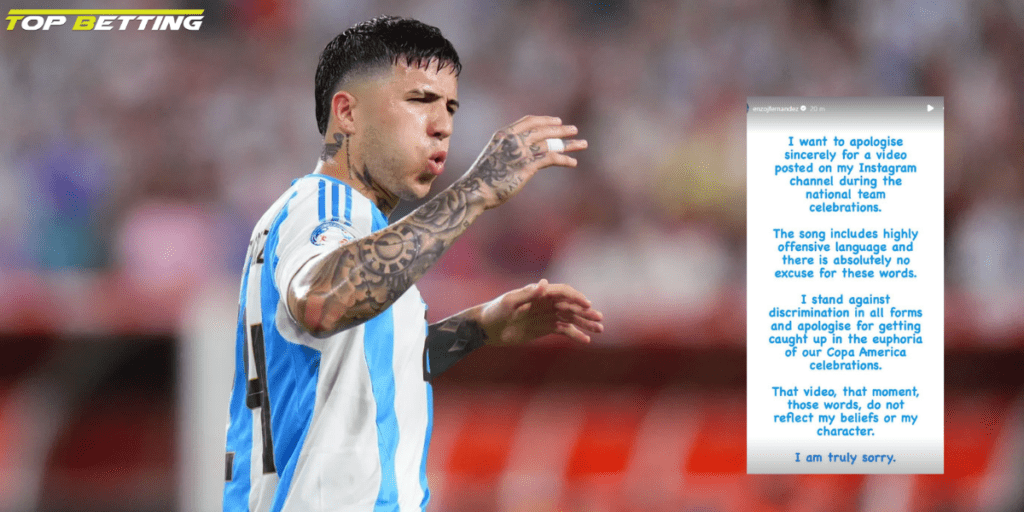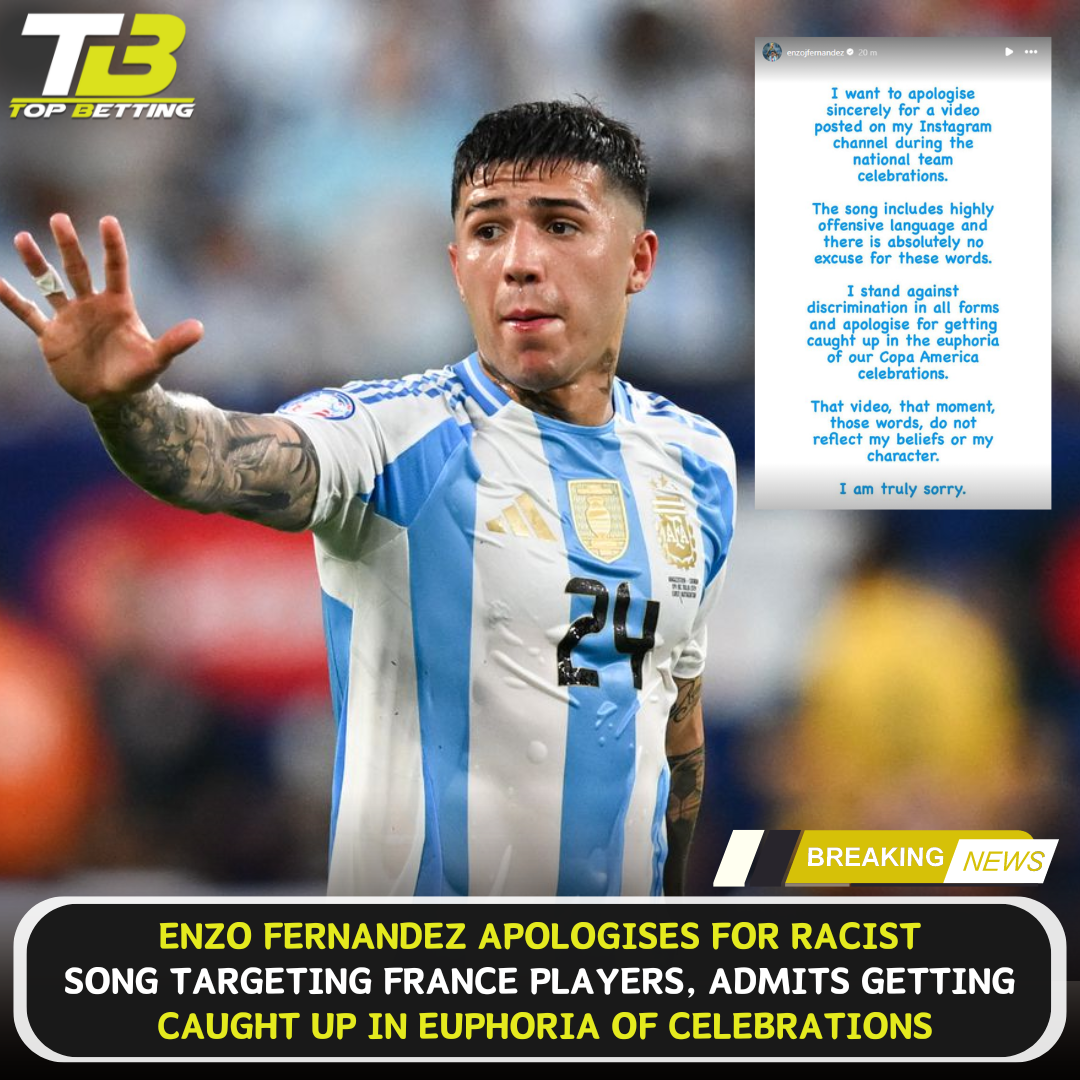
Fernandez apologises for racist song targeting
Background on Enzo Fernandez and the Incident
Enzo Fernandez, the son of French football legend Zinedine Zidane, has found himself at the center of a controversy that has sent shockwaves through the football community. The young Spaniard, who plays as a midfielder for Benfica, was recently involved in a disturbing incident during the celebrations following Spain’s victory in the UEFA European Under-19 Championship.
The incident occurred when Enzo and his teammates were jubilantly celebrating their triumph. In the midst of the revelry, Enzo was caught on camera participating in a chant that contained racist slurs targeting the players of the French national team. The offensive song, which mocked the French players, was widely condemned by fans and football authorities alike, and Enzo quickly found himself at the center of a media firestorm.
As the news of his involvement in the racist chant spread, Enzo Fernandez knew he had to take responsibility for his actions. In a heartfelt statement, the young footballer acknowledged his mistake and expressed his sincere apologies to the players affected, the French Football Federation, and all football fans who were offended by his behavior. Enzo’s willingness to admit his wrongdoing and take accountability for his actions sets an important example for others in the sport.
Understanding the Impact of Racist Songs in Football
Racist chants and songs have long been a scourge in the world of football, with incidents of this nature occurring across various leagues and competitions. These offensive displays not only tarnish the reputation of the sport but also have a profound impact on the players and communities affected by them.
For the French players who were the targets of Enzo Fernandez’s racist song, the experience must have been deeply hurtful and demoralizing. Imagine being a young athlete, representing your country with pride, only to be subjected to such blatant disrespect and discrimination from an opponent’s fans. The psychological toll of such incidents can be immense, potentially affecting the players’ performance, mental well-being, and overall enjoyment of the game they love.
Steps to Prevent Future Incidents of Racism in Football
The Enzo Fernandez incident serves as a stark reminder that the fight against racism in football is far from over. While progress has been made, there is still much work to be done to ensure that the sport remains a welcoming and inclusive environment for players, fans, and all those involved.
Moving forward, football governing bodies, clubs, and national federations must take a multi-pronged approach to addressing the issue of racism. This should include:
Strengthening Education and Awareness Campaigns: As mentioned earlier, comprehensive educational programs that instill the values of respect, diversity, and inclusion are crucial. These programs should be implemented at all levels of the sport, from youth academies to professional teams, to ensure that players, coaches, and staff are fully aware of the impact of racist behavior and the importance of fostering a inclusive environment.
Implementing Robust Disciplinary Measures: Governing bodies must continue to impose strict penalties on individuals and organizations that engage in racist behavior. This includes not only suspensions and fines but also the potential for more severe sanctions, such as points deductions or even exclusion from competitions. The message must be clear: racism will not be tolerated in football.
Empowering Fans and Grassroots Initiatives: Football fans and community organizations play a vital role in combating racism. Governing bodies should work closely with these stakeholders to develop and support grassroots initiatives that promote diversity, inclusion, and anti-racism campaigns within the sport. This can include educational programs, fan-led initiatives, and collaborative efforts to create a more welcoming and inclusive environment in stadiums and beyond.
Enhancing Reporting and Accountability Mechanisms: It is essential that football authorities have robust systems in place to identify, investigate, and address incidents of racism. This includes making it easier for players, fans, and officials to report any discriminatory behavior, as well as ensuring that the disciplinary process is transparent and consistent across all levels of the sport.
Fostering Diversity and Representation: Football must strive to better reflect the diversity of the communities it serves. This means actively promoting the inclusion of underrepresented groups in all aspects of the sport, from players and coaches to administrators and decision-makers. By embracing diversity, the sport can become a more vibrant, inclusive, and representative reflection of the world we live in
Conclusion and Lessons Learned from the Incident
The Enzo Fernandez incident serves as a sobering reminder that the fight against racism in football is an ongoing battle that requires sustained effort and commitment from all stakeholders. While the young midfielder’s actions were unacceptable, his willingness to take responsibility and express sincere remorse is a positive step that sets an example for others who may find themselves in similar situations.

The lessons learned from this incident are clear: Racism has no place in football, and the football community must continue to work tirelessly to eradicate it. This means investing in comprehensive education programs, implementing robust disciplinary measures, empowering fans and grassroots initiatives, and fostering greater diversity and representation within the sport.











